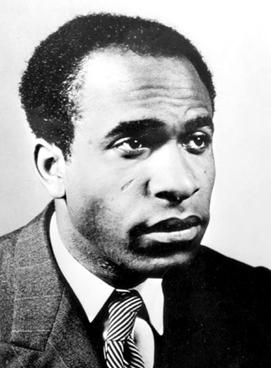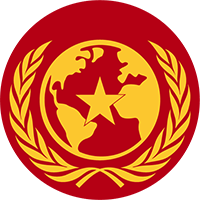More languages
More actions
| Author | Ulrike Meinhof |
|---|---|
| First published | 1964 |
| Type | Article |
21 November
1789
- North Carolina becomes the 12th U.S. state.
1962
- The PLA declares a ceasefire in the China-India War.
1992
- Kaysone Phomvihane, first General Secretary of the Lao People's Revolutionary Party, dies at the age of 71 in Vientiane, Laos.
2002
- NATO invites Bulgaria, Estonia, Latvia, Lithuania, Romania, Slovakia and Slovenia to become members.
2019
- War criminal and "Israeli" prime minister Benjamin Netanyahu is indicted of fraud and bribery.
Frantz Fanon | |
|---|---|
 | |
| Born | July 20, 1925 Fort-de-France, Martinique, French West Indies |
| Died | December 6, 1961 (aged 36) Bethesda, Maryland, USA |
| Cause of death | Leukemia |
| Known for | Black Skin, White Masks, The Wretched of the Earth |
Frantz Fanon (July 20, 1925 – December 6, 1961) was a psychiatrist, anti-colonial political theorist, author, and revolutionary from the Caribbean island of Martinique. He is the author of various works including Black Skin, White Masks (1952) and The Wretched of the Earth (1961).
Born as a colonial French subject, he eventually travelled to France for his education in psychiatry.
In the latter portion of his life, he was involved with the Algerian National Liberation Front (French: Front de Libération Nationale; FLN) in the Algerian independence struggle against the French.[1] He also worked in Tunisia with Algerian independence forces, and served as the Ambassador to Ghana for the Provisional Algerian Government. He passed away in 1961, after being diagnosed with leukemia.[2]
Fanon's political thought deals heavily with the implications and consequences of colonization, focusing considerably on anti-colonial struggles of his time as well as on the effects of colonization on the human psyche.
In 1953, Fanon was named the Head of the Psychiatry Department of the Blida-Joinville Hospital in Algeria. There, via his patients, Fanon gained increased insight into the torture and brutality ongoing under French rule. In 1956, Fanon resigned from his position to struggle for Algerian independence.[2][3] He documented French atrocities for the French and Algerian media.[4] According to Fanon, the only way for anti-colonial governments to prevent military coups is to politically educate the army and create civilian militias.[5]
Read more
- October 2024
ProleWiki has a brand new homepage! Read our release here.
- 01 March 2024
You can now download our pages as PDF or EPUB books! To do so, open the main menu and click "Create a book" at the far end of it. Then follow the instructions. You can add several different pages to a book, and then download it all as one file. We hope you enjoy this new feature!
- 20 September 2023
We are proud to announce our brand new Essays space! Read our release here. The new custom-built essays frontend looks closer to a blog and whereas the legacy essays space ordered essays by author, this new interface orders them by publication date with a sidebar of available items. It also provides an excerpt of the essay, ultimately all improving discovery.
← Back to all essays | Author's essays
2024 living in China FAQ
by Deogeo
Published: 2024-08-28 (last update: 2024-11-21)
5-15 minutes
Last 7 days (Top 10) |
|||||||||||||||||||||||||||||||||||||||||||||||||||||||||||||||||||||||||||||||||||||||||||
|
|||||||||||||||||||||||||||||||||||||||||||||||||||||||||||||||||||||||||||||||||||||||||||
- ↑ “Remembering Algerian Revolutionary Frantz Fanon.” teleSUR, Dec. 6, 2017. Archived 2022-08-18.
- ↑ 2.0 2.1 “Martinique and Algeria’s Franz Fanon Remembered.” teleSUR. 2016. Archived 2023-03-19.
- ↑ John Drabinski. "Frantz Fanon." Stanford Encyclopedia of Philosophy. Stanford.edu. Mar 14, 2019. Archived 2023-03-19.
- ↑ Vijay Prashad (2008). The Darker Nations: A People's History of the Third World: 'Algiers' (p. 121). [PDF] The New Press. ISBN 9781595583420 [LG]
- ↑ Vijay Prashad (2008). The Darker Nations: A People's History of the Third World: 'La Paz' (p. 139). [PDF] The New Press. ISBN 9781595583420 [LG]















